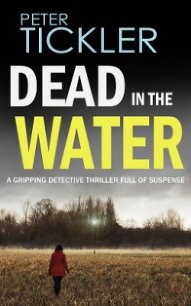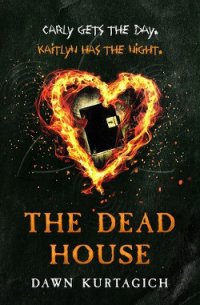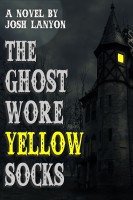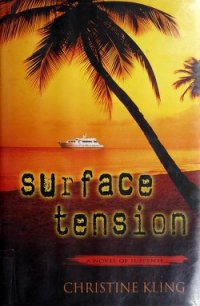The Brief History of the Dead - Brockmeier Kevin (первая книга txt) 📗
There had been a time, and not that long ago, when he had taken pride in the fineness of his memory. He had thought of the history of his life as a perfect unfraying string, spooling out in a single line behind him; all he had to do was take it in his hands, give it a few strong hitches, and he could reexamine it at any point. But now the string had become tangled and knotted, and he was afraid that it would never be straight again.
It was late that afternoon when he heard someone say that the rest of the golf course had disappeared, along with the fire station, the arboretum, and the back half of one of the office buildings on Erendira Street. The next morning it was the natural science museum and most of the shopping plaza. And a couple of days after that, for the first time, a woman reported that the phenomenon had extended its great blank barriers below the ground. The woman said that she had been crossing through the subway tunnel that ran beneath Christopher Street when she paused at the edge of the platform to tie her shoes. She noticed that the tracks and the track bed were no longer there. She backed away, then peered over the edge to look again. Nothing. She found the crushed red and silver disk of a Coke can on the platform and tried to drop it into the empty space. But she must have miscalculated, she said, because it landed at her feet, bounced a few times, then rolled away behind her. "It was like there was a river running between this side of the platform and the other. Except that there was nothing to it. No clay, no water – so basically no river." She gave a muffled laugh. "I guess I don't really know how to describe it."
"You don't have to describe it," someone said. "We've all seen it for ourselves."
But the blind man had not seen it. "You're talking about what's happening down below," he said. "That's one thing. But what about what's happening up above?"
He heard a half dozen collars rustling as the people around him craned their heads to look into the sky. "It's hard to tell," someone answered. "But something's definitely going on up there."
There was an unusual shearing pattern to the tops of the clouds, apparently, but no one could say whether it was the effect of the bubble or just some strange wind blowing high in the atmosphere. The blind man listened as they talked the matter over. Was the top corner of one of the high-rises missing? Had the sky always been that same powdery shade of blue? Finally, a gravelly voice summed things up for him: "It looks a little washed out, maybe, but everything's still up there, at least as far as I can tell."
After that, the crowd began to dissipate. As the blind man was leaving, a finger tapped his shoulder. He smelled a faint whiff of lavender. "How are you doing?" The voice belonged to a woman.
"I've seen worse times," the blind man said.
"You don't remember me, do you?"
"I don't. I'm sorry."
"I'm Minny Rings. I met you after the evacuation. We made coffee and English muffins together." "Did we?"
"Mm-hmm. You and me and Luka Sims. And this makes six to ten."
Luka Sims? The blind man thought about the name for a moment, and then he remembered. "The newspaperman." "That's right."
What he remembered about the newspaperman was the quality of his breathing, which had been quick and nervous, reminding him of the pulsing heart of a rabbit he had once held in his lap. Also, there was the astringent smell of ink that rose from his clothing and his irritating habit of trying to take the blind man's arm whenever it came time for them to cross the street. Nothing else came to him.
Still, he knew that he had liked the newspaperman, though he could not have explained why. "My regards to you both," he said to the woman.
How long had he been standing there rooting through the tag ends of his memories? It seemed like only a few seconds, but he wasn't sure. He waited for the woman to answer him, and when she didn't say anything, he presumed that the conversation was over. He walked home by way of Park Street and M.
When he got back to his apartment, he opened the window and turned his ears to the sound of a flock of birds that were roosting in a nearby tree. The birds whistled and cooed to each other, efficient little one- and two-note songs, until a car with a broken radiator passed beneath them and they gave a chorus of fluttery peeping sounds. A couple of kids dashed by, smacking the tree with their palms, and the birds took to the air with a sudden explosive snap of their wings. How wonderful it must have been, he thought – to run with a body meant for running, to see with eyes meant for seeing, to fly with wings meant for flying. Sometimes he thought that the most joyful sound in the world would be the sound of the birds taking over the city after everyone else was gone.
It was midway through the next day when the blind man's own building disappeared. He was standing in the colonnade when a man who had spent the last few hours circling the edge of the city stopped to give some of the people around him a report. Another few blocks were gone, he said, and when he listed them off, the blind man recognized the name of his own.
His building had still been there when he left his front door that morning. He was sure of that. How closely behind him had it been extinguished? he wondered.
A group of rollerbladers went skating by. Someone dropped a rubber ball.
There was nothing in his home that he truly needed. He could always find someplace else to sleep the night. But it was disquieting to know that for the moment, at least, he had nowhere else to go.
"Where's your cane, little man?" his mother had asked him the day the boys on his block took it away from him. And he had answered her, "I don't need it anymore."
For a long time it had seemed to him that there were more people on the streets, more people in the park, than ever before, but it was only now that he understood why. As the city became smaller, they were all being drawn toward the center. They were like pieces of bark and foam caught in a giant whirlpool.
And at last he apprehended what was happening.
When the walls came together and the bubble finally collapsed, this was where they would all end up: right here, between these benches and rustling trees. It would happen in a matter of days or weeks. There would be no way for them to avoid it. They would gather together in the clearing around the monument, however many thousand of them there were, and they would stand there shoulder to shoulder. They would listen to each other's voices, and they would breathe each other's breath. And they would wait for that power that would pull them like a chain into whatever came next, into that distant world where broken souls are wrenched out of their histories.
Acknowledgments
I owe thanks to my editors, Edward Kastenmeier and Anya Serota; to my agent, Jennifer Carlson; and to Carin Besser at The New Yorker for her skillful reading of this book's first chapter; as well as to the Arkansas Arts Council for its generous financial support and to Chris Columbus, Michael Barnathan, and Angela Cheng Caplan for their interest in the story I've told. In researching Antarctica for the even-numbered chapters of this book, I turned first to the anthology Ice: Stories of Survival from Polar Exploration, edited by Clint Willis, which led me directly to Apsley Cherry-Garrard's unparalleled memoir of Antarctic exploration, The Worst Journey in the World, portions of which Laura's own journey recapitulates.




